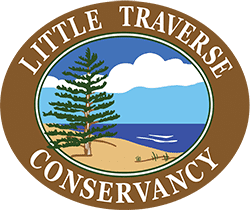Winter Programs
Home » About Education Program » Seasonal Programs » Winter Programs
Director of Education
Sarah Mayhew
Winter Programs
Parentheses suggest grade level.
Winter is a wonderful time of year to get outside and have some fun! As we adapt to the colder months, students will learn about what different animals do during this season. This program encourages younger students to experience winter using their senses! (1 hour – No Snowshoes)
A great way to experience nature in winter. This program focuses mainly on the sport of snowshoeing and getting students outside during the winter months. Ecology will be introduced as students enjoy physical activity in our colder months. (1 hour 15 minutes)
Next Generation Science Standards
2nd grade
- LS4.D: Biodiversity and Humans
- Michigan Physical Education GLCE’s: A.AN.02.O
- Students will sustain moderate to vigorous physical activity levels that cause increased heart rate, breathing rate, perspiration, etc.
3rd grade
- LS2.C: Ecosystem Dynamics, Functioning, and Resilience
- LS4.C: Adaptation
- Michigan Physical Education GLCE’s: K.AN.03.0
- Students will describe the physiological indicators associated with moderate physical activity (e.g., sweating, increased heart rate, increased respiration, palpating pulse) and adjust participation/effort in isolated settings.
4th grade
- LS1.A: Structure and Function
- Michigan Physical Education GLCE’s: A.AN.04.4
- Students will utilize physiological indicators associated with moderate to vigorous physical activity (e.g., sweating, increased heart rate, increased respiration, palpating pulse) to adjust participation/effort in isolated settings.
5th grade
- LS2.C: Ecosystem Dynamics, Function, and Resilience
- LS4.C: Adaptation
- Michigan Physical Fitness GLCE’s A.PA.05.0
- Students will participate in physical activities that are vigorous in intensity level (i.e., a minimum of 60 minutes per day for seven days a week while maintaining 65% of target heart rate) outside of physical education, including locomotor activities, activities inclusive of manipulative skills, dodging, chasing, and fleeing activities, modified games that include combinations of locomotor and manipulative skills, and daily non-structured and minimally organized physical activities outside of physical education.
Searching for tracks is one of the most exciting winter activities. Snow is an excellent surface for tracking an animal and learning about its behavior. This program introduces students to standard tools and techniques for identifying signs of wildlife in winter. All students will learn how to identify tracks, track patterns, and signs animals leave behind. Older students will be exposed to a broader variety of tracking tools and encouraged to use them through cooperative learning. (1 hour 15 minutes)
Next Generation Science Standards
3rd and 4th grade
- LS3.B: Variation of Traits
5th grade+
- LS2.C: Ecosystem Dynamics, Functioning, and Resilience
Year-Round Programs
These three programs can be offered all three seasons of the school year.
Nature journaling is a great way to discover our natural surroundings! Through journaling, students are able to grow a deeper relationship with the natural world and tap into their senses. This experience gives students the opportunity to slow down and express themselves creatively through writing and drawing. (1.5 hours)
This program is intended to expose students to the art of photography while providing them with an outdoor experience that will inspire an appreciation of and awareness for nature. Students will put their acquired photographic techniques into action as we hike along a path at your chosen natural area.
Photography is an excellent tool for expressing creativity, as well as getting outdoors and exploring nature up close. A variety of subjects, including art, science, and language arts, can be applied to photography. Cameras provided. Space is limited for this program. (1 hour)
This course introduces the skills and mindset needed in a wilderness survival situation throughout the seasons. All sessions cover a basic introduction to the following abilities: Importance of attitude, self-reliance and sound decision making, being prepared and informed before venturing out, and strategies for addressing a survival situation. Each season focuses on a different topic— Fall: shelter building; Winter: fire building; Spring: Water collection, and wild edibles. Take one session or all three. (1.5 hours)
